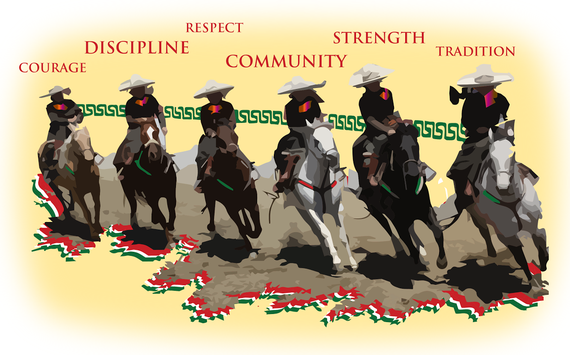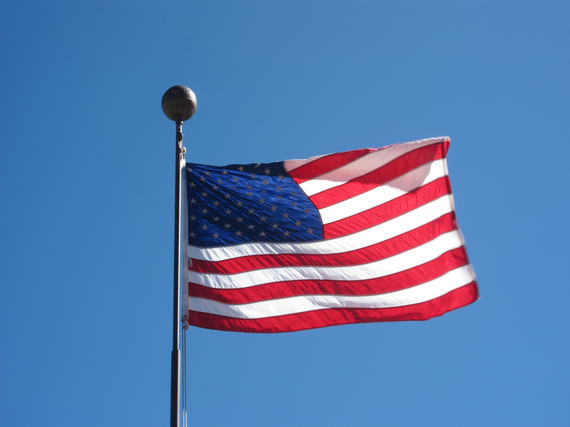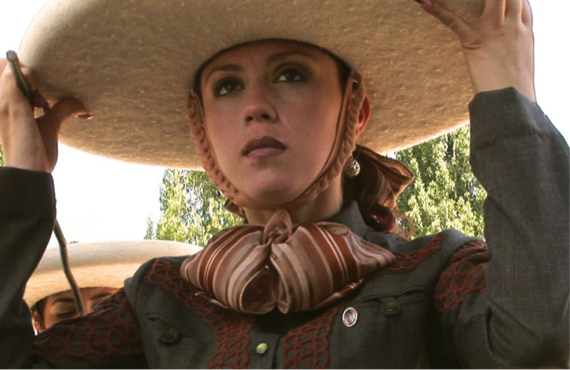Recently in Georgia at a high school graduation ceremony, the school's founder-director made comments that drove people, black and white, to get up and leave before the event ended. A number of people on social media immediately began the blame game - those Georgians, it's the South, etc. Based on this one individual's comments, people unfairly and inaccurately lumped a wide variety of individuals into one group.
In our culture in the US, we tend to label, blame and exclude people whom we perceive are not like us - ethnically, politically, in religion, sexual orientation, socioeconomic status, and so on. It is easy to condemn, but not so easy to distinguish and affirm!
What makes the difference between our condemnation and our affirmation? Individualizing people; seeing their faces and knowing their names, learning their stories. They (and we) are real and, as in whatever group with which we identify, all people (ourselves included) are composites of good and not-so-good qualities. Isn't it better for us all, to look for values-based qualities and build relationships on them?
Why do we care about getting to know 'other' categories of people, anyway? Because, through inclusion of other people with their own unique strengths and abilities, we strengthen our diverse society, both locally and globally, and because it is the right thing to do.
Also, we are also vulnerable to prejudicial labeling; if, by our attitudes we influence our children to continue harmful discrimination, in which they may very well feel the brunt of it in the form of bullying and/or ostracization, we continue the splintering stagnation of our society. On the other hand, if we believe in, and promote affirmation (inclusion), we enjoy the benefits of a healthy, mutually beneficial society that moves forward.
The way we make people feel is far more important than what we say or do; it is what people remember most about us, and it determines where we each fit into this diverse global society of the 21st Century. Do we strengthen our progress, working together? How do we make other people feel?
Michelle Obama spoke passionately about her feelings, even while in the White House and, when Fox News put Ted Cruz through the wringer about his Hispanic ethnicity, they seemed to denigrate his heritage -- his core identity. I remember my sadness as a teen, when my parents refused to let me be friends with a Jewish girl because she wasn't our type; her parents felt the same about me, a Catholic. Is this who we Americans want to be? Who do we want to mold our children to be? When our children and grandchildren are adults, today's ethnic minorities will be majority; where will the WASP adults fit in, then? What will be their legacy? What will be our legacy?
Mexican-Americans are among those often lumped into negative groups. People say they are 'aliens', 'wetbacks', only good for menial jobs. Yet, typically, they are quite different from our condemnatory references; the feeling that goes with enduring these labels had not really hit me until I read When I 'Came Out' as Mexican on CNN's Opinion Page.
One's group, contradicting derogatory labeling, embodies the values that make America or any other country great; they are Charrarias, Mexican-Americans (US citizens) who combine regular jobs with competitive sport involving horsemanship.
While men continue the Mexican tradition of cowboy skills competitively, the women's version, both individually and as teams, involves rapid intricately, synchronized horsemanship. Riding sidesaddle the women's, escaramuza charras , routines involve a high degree of skill, both for the riders and horses.

Graphic by Leah Rama and Pony Highway Productions
An example of escaramuza charras is the California-based Azalea Team, competing for the United States, in Mexico . Their communal approach to competition is result-based, rather than confrontational based; it's win-win for their community, rather than win-lose. They don't pit men against women in daily endeavors; they work together to achieve goals for their community.
Identity
One of the most difficult, yet important, aspects of joining another culture is maintaining identity, while accepting the new culture.
Azalea coach Victor Muñoz said to the team, "Many people don't understand that the same blood here, is the same blood there. Outside our borders, you are preserving the most precious thing we have - our identity."
Often, when we describe strong women in the US, we call them badass because they kick butt, meaning that the women are courageous and powerful enough to stand strong without male oppression. We don't see all strong women this way, of course, but that is often the description - 'Yes! You go, girl!' we say.
The women described here are strong also and, with the equal support of men in their community, they are all free to express their best qualities of gentleness, cooperation, strength, courage and so on, with the two genders complementing each other.
The sport of escaramuza charras is exciting, exacting, beautiful and elegant. It's choreographed in the centuries-old tradition of Mexican horsemanship, and it's performed by mothers, wives, daughters and girlfriends who fit in the practices with home chores, nurturing families and, for some, outside jobs.
The eight-woman team of Escaramuza Charras Azalea, based in California, is comprised of first-and second-generation Americans who gracefully combine old-world traditions with new-world customs.
Said Sandy Torres, team captain,"Our goal is to compete with the best in Mexico and to earn their respect over there. It's their national sport; they're completely dedicated to it, and when we go over there, it's not just to represent our last names or our group; it's the USA, the Mexican-American girls over here."
In 2012, after competing successfully against other US-based escaramuza teams, Escaramuza Charras Azalea won a spot on the US Congressional team, to compete in the world championships in Mexico. At the heart of their dedication, they say, is to show that they still carry on the traditions of their ancestors, valuing the personal characteristics that enabled them to succeed.
In a training session, Muñoz spoke to them: "Why are you here? You're not just any team to compete. To honor that tradition that means so much to us here, and to millions and millions of countrymen outside our borders. Feel it. Show it. In we go!
"Here, the competition is brutal; one little mistake and you're done. First, you must have a winner's attitude. Believe in yourselves, and your work will show it."
(At the National Championship (Campeonato Nacional Guadalajara, Mexico): "All of this circus for four minutes. Eighty-five teams will compete; 18 go on to the semi-final. From those, only five go to the finals. The competition is very tough, but you have what it takes to do it well."
Having known each other all their lives, these women (and their families) embody respect, trust, a collaborative spirit, and support for each other. For them, it's all or none.
The women are hands-on in every aspect of their hobby, from training and caring for the horses, choreographing prescribed routines, to designing and sewing the costumes while caring for their families. Even Grandmas, retired from riding, contribute by helping to sew the costumes for competition. Azalea members raise the funds for their competition in Mexico, approximately $2,000 per person with horse, primarily through fundraisers such as Bingo games and communal meals, which they cater.
Why do they work so hard at the sport? For love and pride; they love the tradition with all its grace and beauty, they love their culture and want to preserve it, they love their children who usually carry on with it, and they cherish the values required for success - success, not only in their sport but also in helping to make the United States of America the best it can be.
Azalea Team member Maribel Gutierrez said, "It's what we are, and what we want our kids to know."
For you and me, we can also consider what we are, and what we want our kids to know. So, rather than excluding others whom we consider different from us, wouldn't it be healthier for our society if we base our judgements on common values, or values we can emulate, and common goals? It's our lives and our legacy.


